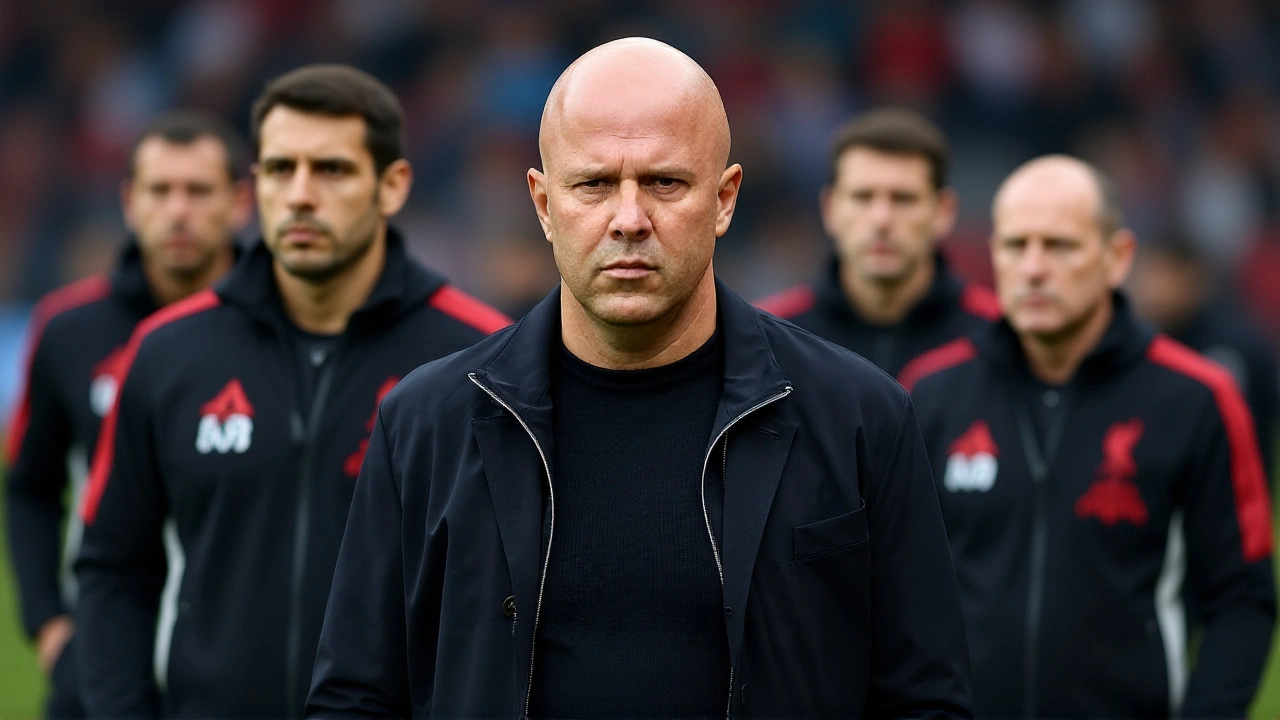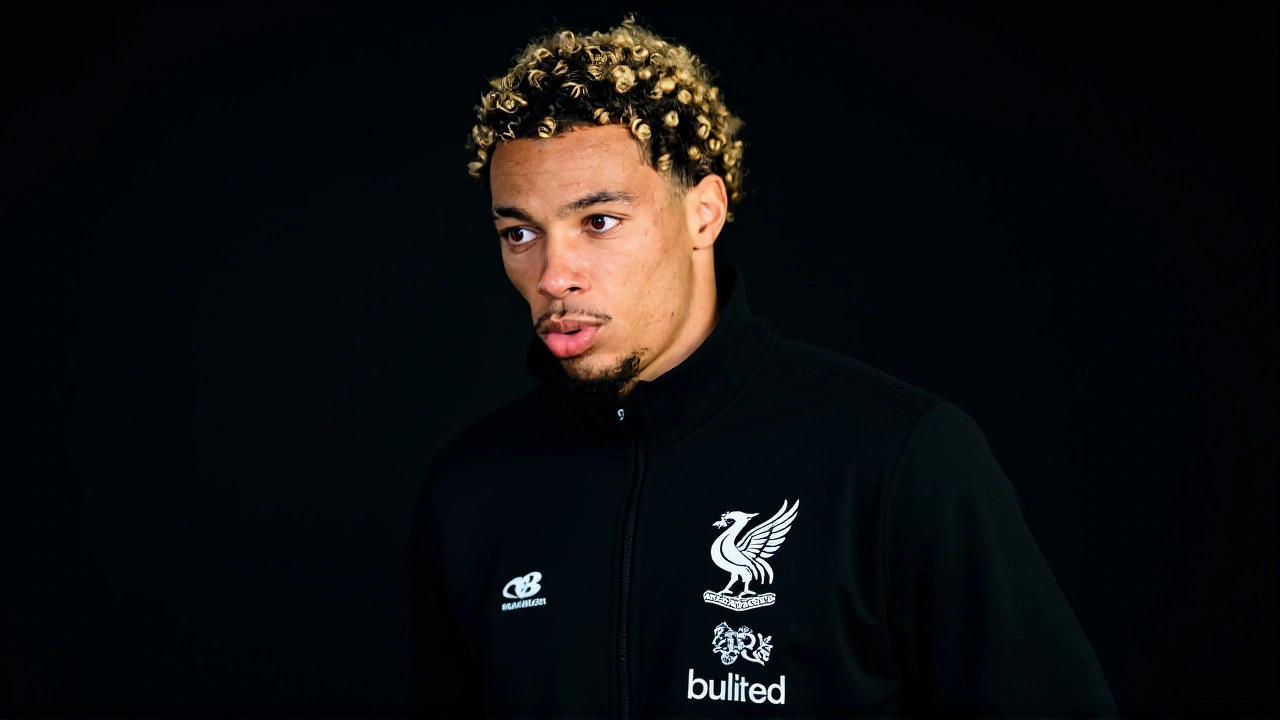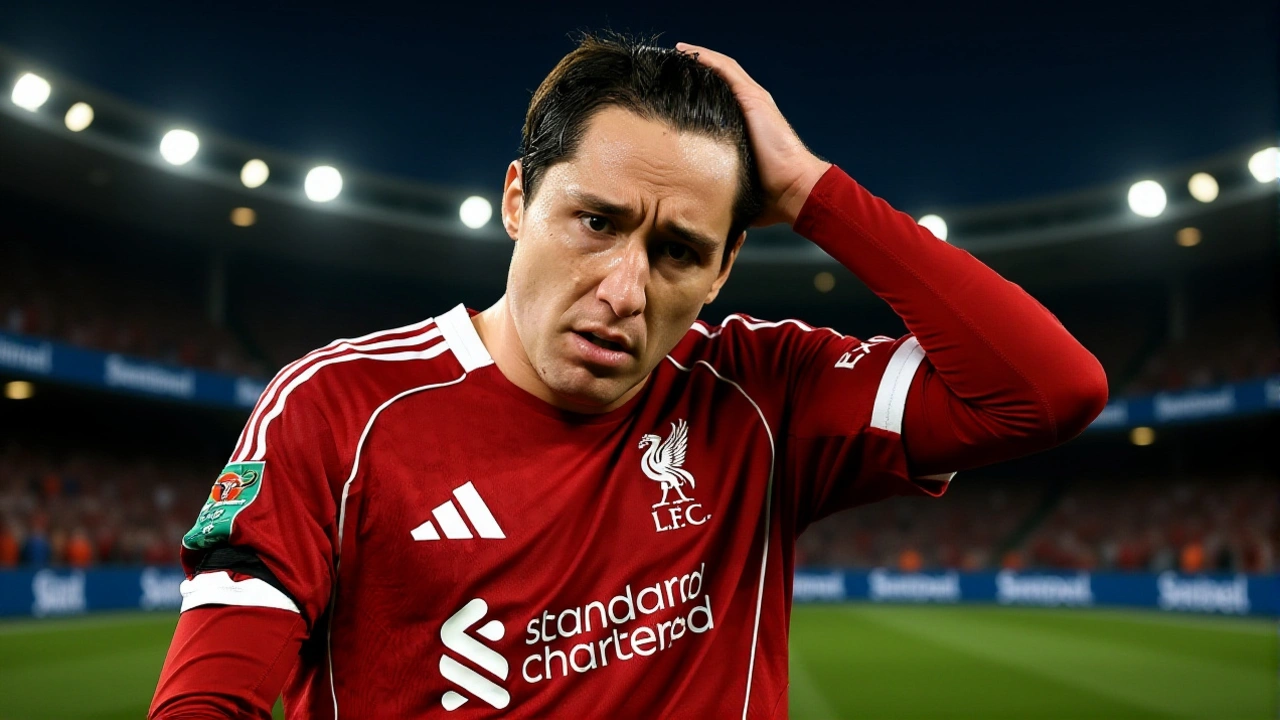When Arne Slot, Liverpool manager announced his Champions League squad, the biggest name missing was Federico Chiesa, Italy winger. The decision, revealed at a pre‑Burnley press conference on August 11, 2025, has sent shockwaves through Anfield and raised questions about how UEFA’s home‑grown player limits are reshaping elite clubs. Slot admitted it was "one of the toughest calls since I took over from Jurgen Klopp", underscoring the delicate balance between ambition and regulation.
Background: Slot’s squad dilemma
Slot stepped into Liverpool’s hotseat in July 2025 after a brief spell at Feyenoord, inheriting a team that had just clinched the Premier League title under Jurgen Klopp. The new boss was handed a relatively thin summer market – the only incoming player for a £10 million fee was Chiesa, arriving from Juventus Football Club. By mid‑season, however, the Reds added two high‑profile attackers: Florian Wirtz from Bayer Leverkusen and Alexander Isak from Newcastle United.
The influx of talent meant Slot had to trim his 25‑man list to the 22‑man roster mandated for the Champions League group stage. UEFA’s rule – a maximum of 17 non‑homegrown players – left little wiggle room. Liverpool already fielded 14 foreign players, so every slot became a premium commodity.
Champions League roster rules and their impact
UEFA’s home‑grown quota, first introduced in the 2006‑07 season, requires each club to register at least eight players trained in the club’s national association for the previous three years. While the rule aims to promote local talent, in an era of global scouting it often forces managers to make painful cuts.
- Maximum non‑homegrown players: 17
- Liverpool’s foreign count before the deadline: 14
- Players already secured in the squad: Salah, Van Dijk, Alisson, TAA, etc.
- New signings vying for spots: Wirtz, Isak, Chiesa, and a few academy graduates
Slot’s calculus was simple yet ruthless: he needed to keep players who could contribute immediately in a league where Liverpool was defending a title and aiming for another deep European run.
How Chiesa’s season unfolded
Chiesa made an immediate impact in the Premier League opener, sliding in a late goal during a 3‑1 win over Bournemouth on August 12, 2025. He featured in the next two matches, totalling just 165 minutes before the Champions League registration deadline on August 31. After that, his minutes dwindled as Slot rotated the forward line to accommodate Wirtz and Isak.
He earned his first start on May 15, 2025, in a 3‑2 loss to Brighton – a game that already had the title secured, allowing Slot to experiment. Chiesa’s contribution was limited to one shot on target, but he displayed the trademark movement that made him a Euro 2020 champion.
In the final league match against Chelsea on May 25, 2025, he entered in the 82nd minute, just enough to satisfy the five‑appearance rule for a Premier League winners’ medal. Observers noted the substitution felt more like a goodwill gesture than a tactical choice.

Reactions from the club and pundits
Slot praised Chiesa’s professionalism, saying, "He gave the answer you want to hear from a player – that he will be to help the team in the cups and in the league – and he showed this by working really hard to be ready for the upcoming games." The Italian’s calm acceptance earned nods from former players, yet fans on social media expressed frustration at seeing a £10 million asset relegated to the periphery.
Former Liverpool captain Steven Gerrard remarked, "You can’t blame Slot for the rules, but you also have to wonder if there’s a better way to integrate a player of Chiesa’s pedigree without sacrificing squad harmony." Meanwhile, rivals such as Manchester City pointed to their own success in juggling foreign talent while staying within UEFA limits.
What the decision means for Liverpool’s future
Looking ahead, Slot faces a crucial window to either sell Chiesa before the January transfer window or find a rotational role in domestic cups. The club’s scouting department is reportedly eyeing a loan move to Serie A, where the winger could regain confidence and form.
The broader lesson for top clubs is stark: as UEFA tightens home‑grown quotas, managers must think beyond immediate transfers and consider long‑term squad composition. For Liverpool, the decision underscores a shift from the Klopp‑era model of blanket acquisitions to a more surgical, data‑driven approach.
Key Facts
- Arne Slot announced the Champions League squad on 31 August 2025.
- Federico Chiesa was omitted due to UEFA’s 17‑non‑homegrown limit.
- Chiesa arrived from Juventus for £10 million, Liverpool’s only summer signing at the time.
- New signings Florian Wirtz and Alexander Isak secured spots in the squad.
- Chiesa made six Premier League appearances, scoring once, before the squad deadline.

Frequently Asked Questions
Why did Liverpool have to drop Chiesa from the Champions League squad?
UEFA limits each club to 17 non‑homegrown players for the group stage. Liverpool already had 14 foreign players, and the arrival of Florian Wirtz and Alexander Isak meant there were only three slots left. Slot chose the newcomers over Chiesa, citing immediate impact and positional balance.
How has Chiesa performed for Liverpool so far?
Chiesa scored the winning goal against Bournemouth in August and featured in the first three league games, totaling just 165 minutes before the registration deadline. He later made sporadic cameo appearances, including a start against Brighton and a late substitute role versus Chelsea, accumulating six league outings and a single goal.
What options does Liverpool have for Chiesa this season?
The club can keep him for domestic cup fixtures, attempt a January loan to a Serie A side, or sell him before the summer transfer window closes. A loan could provide game time and preserve his market value, while a sale would free up a non‑homegrown slot for future signings.
How do UEFA’s home‑grown rules affect other top clubs?
Clubs like Manchester City and Bayern Munich have long built academies to meet the quota, reducing reliance on foreign players. The rule forces big teams to balance star signings with home‑grown talent, often prompting strategic loan deals or earlier integration of academy graduates.
What does this decision tell us about Arne Slot’s managerial style?
Slot appears pragmatic, willing to make unpopular cuts to comply with regulations and maintain squad harmony. His emphasis on "professional response" from Chiesa suggests a focus on attitude over reputation, hinting at a longer‑term plan centered on tactical flexibility and data‑driven player evaluation.


Govind Kumar
The enforcement of UEFA's home‑grown quota necessitates strategic roster management across Europe.
Clubs must register at least eight players trained domestically, limiting the number of non‑homegrown slots to seventeen.
For Liverpool, already possessing fourteen foreign players, the margin for additional signings becomes razor‑thin.
Arne Slot therefore faced a binary choice between newly acquired talents and an existing asset such as Chiesa.
This calculus reflects a broader shift toward data‑driven squad composition rather than sheer spending power.